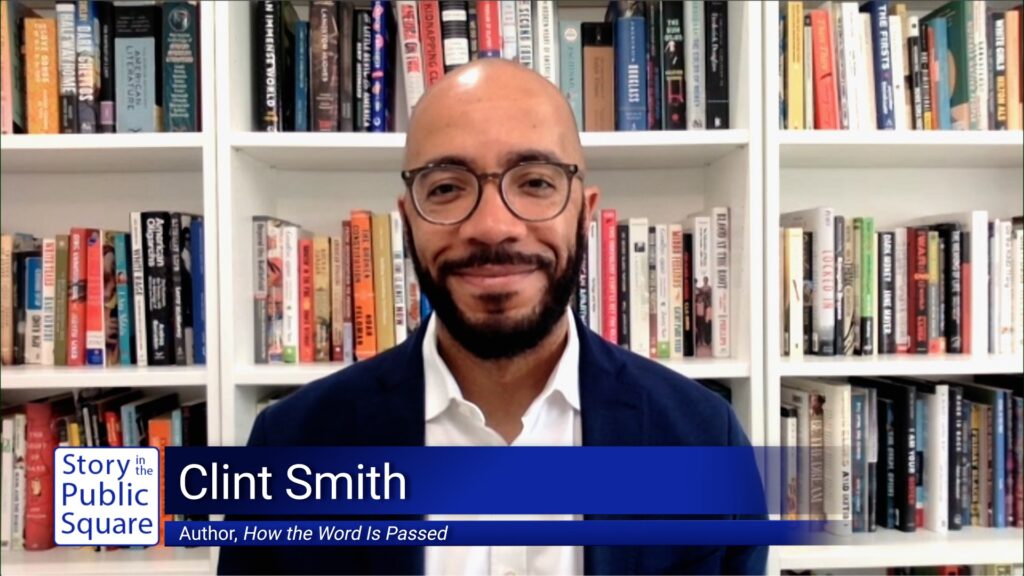Documenting America’s History with Slavery with Clint Smith
Slavery has been called America’s original sin, yet its depiction in American history and schools remains surprisingly controversial. Clint Smith has travelled the country to document the ways in which that story is told, shining a light not just on who we were, but who we are.
Clint Smith is a staff writer at The Atlantic. He is the author of the narrative nonfiction book, “How the Word Is Passed: A Reckoning With the History of Slavery Across America,” which was a #1 New York Times bestseller, winner of the National Book Critics Circle Award for Nonfiction, the Hillman Prize for Book Journalism, the Stowe Prize, the Dayton Literary Peace Prize, and selected by the New York Times as one of the 10 Best Books of 2021. He is also the author of the poetry collection “Counting Descent,” which won the 2017 Literary Award for Best Poetry Book from the Black Caucus of the American Library Association and was a finalist for an NAACP Image Award. His forthcoming poetry collection, “Above Ground,” which will be published March 28, 2023. Clint has received fellowships from the Andrew W. Mellon Foundation, New America, the Emerson Collective, the Art For Justice Fund, Cave Canem, and the National Science Foundation. His essays, poems, and scholarly writing have been appeared in The New Yorker, The New York Times Magazine, The New Republic, Poetry Magazine, The Paris Review, the Harvard Educational Review, and elsewhere. Previously, Clint taught high school English in Prince George’s County, Maryland where he was named the Christine D. Sarbanes Teacher of the Year by the Maryland Humanities Council. He is the host of the YouTube series Crash Course Black American History. Clint received his bachelor’s degree in English from Davidson College and his Ph.D. in Education from Harvard University.
On this episode of “Story in the Public Square,” Smith discusses his work and the power stories we tell have on public memory. As statues of Confederate leaders paying homage to enslavers have been taken down across many cities the American South, Smith says, “they’ve reflected the stories people tell and those stories shape the narratives that communities carry, and those narratives shape public policy and public policy shape the material conditions of people’s lives.” He adds that they can help us recognize the “ecosystem of ideas and stories and narratives that help ground our understanding of American history and help ground our understanding of the ways that certain communities have been disproportionately intentionally harmed throughout American history.”
“Story in the Public Square” broadcasts each week on public television stations across the United States. A full listing of the national television distribution is available at this link. In Rhode Island and southeastern New England, the show is broadcast on Rhode Island PBS on Sundays at 11:00 a.m. and is rebroadcast Thursdays at 7:30 p.m. An audio version of the program airs Saturdays at 8:30 a.m., 2:30 p.m. ET, and Sundays at 2:30 p.m. ET on SiriusXM’s popular P.O.T.U.S. (Politics of the United States), channel 124. “Story in the Public Square” is an initiative from the Pell Center at Salve Regina University that aims to study, celebrate and tell stories that matter.

